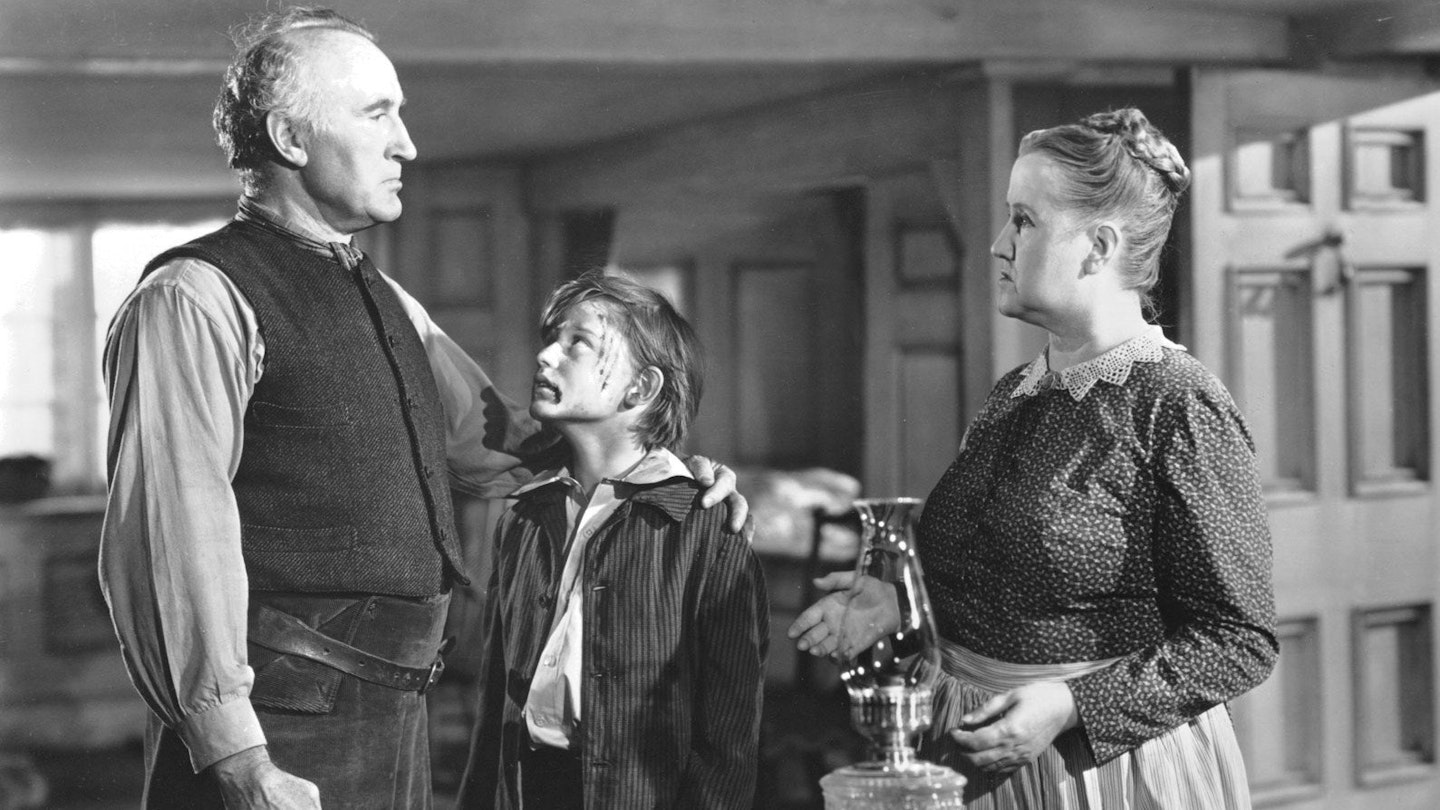Following The Grapes of Wrath and Tobacco Road, this adaptation of Richard Llewellyn's novel completes John Ford's social-consciousness trilogy, in which the decline of a single family reflected that of an entire community in the face of wider economic forces. It was originally planned as a four-hour Technicolor epic as Fox sought its own Gone With the Wind. However, the outbreak of the Second World War prevented location shooting in the Rhondda Valley and, after director William Wyler's departure, producer Darryl F. Zanuck settled for the construction of an authentic Welsh mining set in the San Fernando Valley (which took 150 builders six months to complete to Richard Day and Nathan Juran's specifications, pushing the film's budget to $1,250,000).
Zanuck initially planned to have Tyrone Power play the older Huw. But Ford insisted on retaining Roddy McDowall throughout (although Irving Pichel provides the older voice-over), as he was keen to show the decline and depopulation of the valley through his eyes and not as a series of incontrovertible facts.
Thus, the composition of each frame, the camera angle and even the lighting was designed to approximate Huw's presence and emotions. It was a brilliant bid to recreate the `I' of the novel in filmic terms. However, many critics misunderstood Ford's motives and accused him of the reactionary sentimentality that he exhibited towards many of his other Celtic characters. But, rather than championing the stagnant values held by old man Morgan, Ford is actually denouncing his resistance to progress and castigating Huw for lacking the courage of his brothers' convictions. Indeed, by presenting events from Huw's naively tainted perspective, Ford implicates him in the tragedies and betrayals that education, unionism and religion might have prevented.
The performances are powerful throughout and Arthur Miller's deep-focus photography is exceptional. But did Ford really deserve to become the first director to win consecutive Oscars, especially when the competition included Orson Welles and John Huston for Citizen Kane and The Maltese Falcon respectively?
